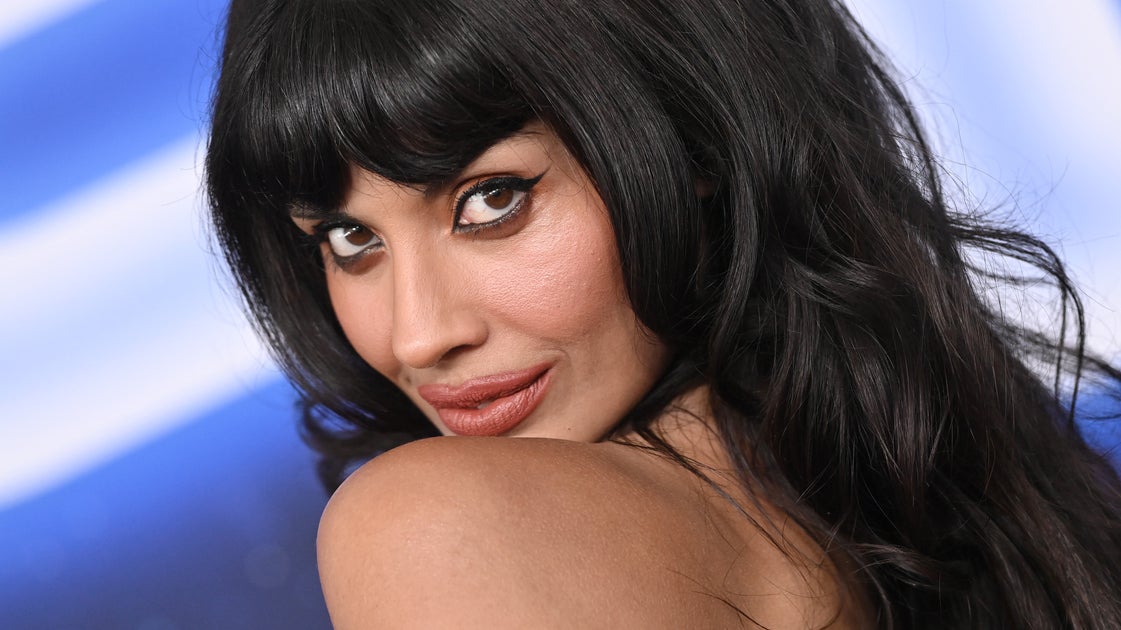Actor Jameela Jamil claimed last week that she orgasmed while DJing at a Young Farmers Ball nearly 15 years ago.
During a recent podcast appearance on “The Romesh Ranganathan Show,” Jamil said when she was a DJ in England, she was working a Young Farmers Ball at a venue that was “so big” that the decks had to go on top of the “ginormous” speakers.
“I’m a sensitive young woman, or I was at the time,” said Jamil, who is known for playing Tahani Al-Jamil in “The Good Place.”
“I was 26, I think. And I had to DJ on the speakers, but the vibration of the bass was awakening something in my groin area. And so, I started having an orgasm in front of 6,000 people and I’m trying my best to cover it up, but it’s very intense.”
While telling the story, Jamil breathed heavily, explaining that her tour manager thought she was having an asthma attack and offered her an inhaler.
“So I have an orgasm and I think I’ve gotten away with it and I think it’s mildly funny, but then, once women pop, we’re like Pringles,” Jamil said. “We can’t stop. And so it happens again.”
She continued: “It just started happening again and again and again, and after like three, it stops being funny.”
“I think I came relentlessly for an hour set and then fainted at the end, and couldn’t feel anything from, like, the waist down and couldn’t even pee for like 12 hours. I barely survived,” she said.
Jamil, who was promoting her podcast “Wrong Turns,” also spoke about her distrust of journalists. While she never mentioned anyone by name, writer Tracie Egan Morrissey accused Jamil of embellishing stories about her life in 2020. In response, Jamil called Morrissey a “poorly researched stalker.”
On “The Romesh Ranganathan Show,” Jamil described her “maddening experiences” with journalists, saying “they just write everything they don’t like about controversies of mine from 15 or 20 years ago.”
TruthHas NoBias
Your SupportFuelsOur Mission
Your SupportFuelsOur Mission
We Won’t Back Down
As more major networks align with those in power, the space for fearless journalism is shrinking. By becoming a member, you support a newsroom that asks the tough questions, no matter who’s in charge.
We remain committed to providing you with the unflinching, fact-based journalism everyone deserves.
Thank you again for your support along the way. We’re truly grateful for readers like you! Your initial support helped get us here and bolstered our newsroom, which kept us strong during uncertain times. Now as we continue, we need your help more than ever. .
We remain committed to providing you with the unflinching, fact-based journalism everyone deserves.
Thank you again for your support along the way. We’re truly grateful for readers like you! Your initial support helped get us here and bolstered our newsroom, which kept us strong during uncertain times. Now as we continue, we need your help more than ever. .
Already a member? Log in to hide these messages.
Earlier this year, Jamil, who has used her platform to speak about feminism, wrote in a Substack that she was done being interviewed by female journalists “specifically in print” because “they can liberally pepper or smother the piece with their assumptions, interpretations, insecurities and projections.” The declaration came after The Sunday Times wrote a profile that Jamil’s “claws” retracted after she said she didn’t want to discuss Morrissey’s accusations.
“Women deserve to be called out as much as men,” she said on the podcast.

